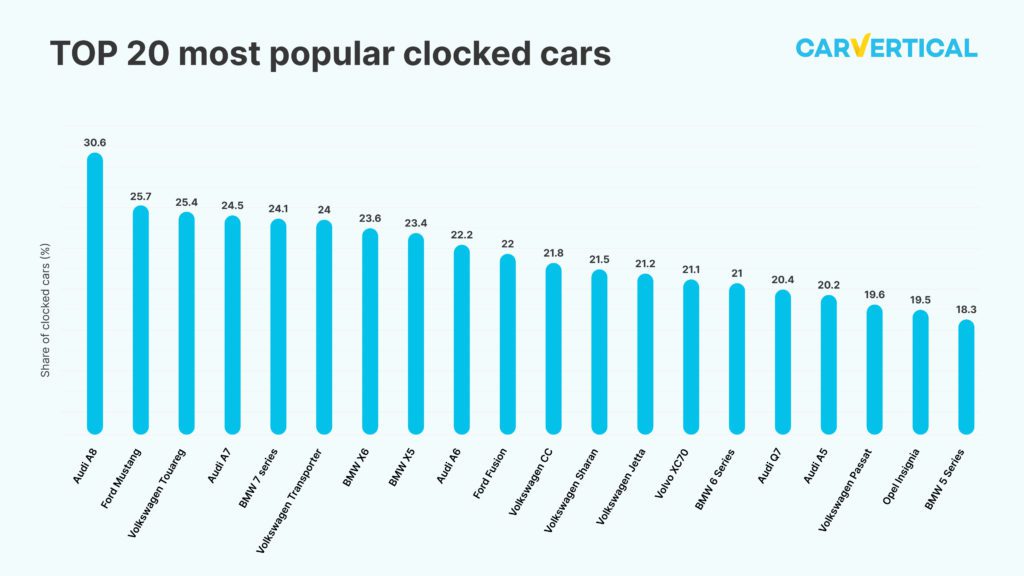Share This Article
Clocking the mileage of vehicles remains a common practice in the second-hand market. And even though buyers are getting more cautious about car-related scams, a new study by carVertical shows that the risk of buying a clocked vehicle is still very high.
Odometer fraud doesn’t only mean high maintenance costs – it also significantly lowers a car’s value. With mileage fraud-related losses at an estimated €8.77 billion a year (according to a study by the European Parliamentary Research Service), it’s important to learn more about this costly issue.

German cars are the most affected by mileage fraud
Vehicle history company carVertical analyzed 1.11 million history reports between the last 12 months in 24 markets, covering the US and most of Europe.
The study revealed that the most-clocked car is the luxurious Audi A8 sedan. Out of all A8s checked on the platform, 30.6% had a falsified mileage, meaning that almost every third used Audi flagship can be with a mileage fraud.
In fact, 6 out of 10 most clocked cars were expensive German vehicles, such as the Audi A7, BMW X5, BMW 7-series, and the Volkswagen Touareg. Their high cost (and, therefore, high potential for profit) turns these vehicles into a perfect target for odometer scammers on the second-hand market.
Among the models from other makers on the most-clocked list, we also see the Ford Mustang in 2nd place (25.7% clocked), the Ford Fusion at 10th (22% clocked), the Volvo XC70 at 14th (21.1% clocked), and the Opel Insignia at 19th (19.5% clocked).
Hybrids and EVs can have mileage fraud, too
Traditionally, used vehicles with petrol and diesel engines had the biggest share in the second-hand car market, meaning they are at the center of mileage scams. However, the growing demand for less polluting cars is rapidly changing the landscape.
According to the study, the engine type is not a good indicator for determining whether a vehicle is likely to be clocked. Although for some models, like the BMW 7 Series, gasoline and diesel are still more likely to be clocked than hybrids, for other cars this doesn’t seem to be the case.
For example, on the Volkswagen Jetta, the hybrid powertrain has a more significant share of cars with a clocked mileage (27%) than diesel (24,1%) or petrol version (22,4%).
The growing number of electrified cars with a falsified mileage suggests that buyers should be more cautious. While the overall share of clocked electric vehicles (13.4%) is lower than Europe’s average (15.6%), the difference is negligible. Additionally, buying an electrified car with a falsified mileage could lead to massive repair bills.
Clocked electric cars pose the highest risk, because degraded battery packs mean expensive repairs. As such, figuring out the actual mileage plays an even more critical part when looking for a used electric or hybrid car.


